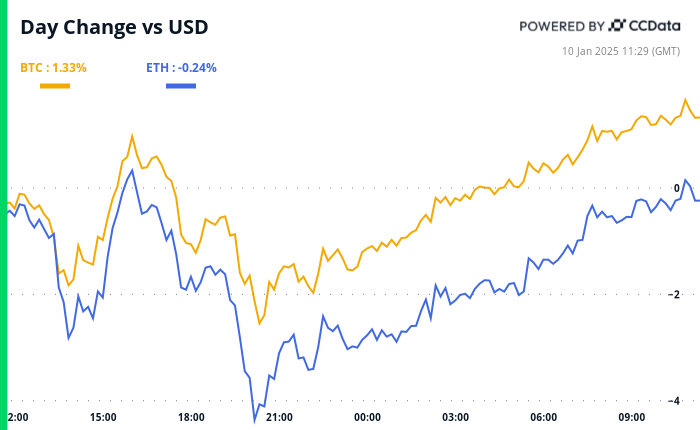Despite the astonishing value of stolen cryptocurrency, not everything is about money. There were a number of cryptocurrency scams and frauds in 2021. Yes, significant sums were funnelled through the shady schemes and cons on this list.
Nonetheless, the audacity and creativity of a few of these frauds and hacks, perpetrated by persons who only make off with six figures worth of stolen cryptocurrency, are occasionally noteworthy. So, without further ado, here is the most extensive and accurate cryptocurrency & Bitcoin scammer list of 2022 to date.
1. Axie Infinity Scam: $615 Million was Stolen
If $615 million were taken from you, would you suspect anything? Sky Mavis, the creator of the Axie Infinity game, which is currently the most widely used crypto game, did not. In March, cybercriminals discovered a flaw in the Ronin blockchain, the Ethereum-based sidechain on which Axie Infinity works. Additionally, the security protocol reduction that Sky Mavis allegedly made in December as a temporary tweak led to the vulnerability.
The fact that the circumstances had not changed a few months later allowed the hackers to exploit them. How was it discovered that tens of millions of dollars were missing from Sky Mavis’s account? A user tried to withdraw funds but was unsuccessful because there wasn’t enough liquidity left. Axie Infinity is a play-to-earn crypto game that requires players to purchase expensive non-fungible tokens (NFTs) before playing.
After purchasing these NFTs, gamers can engage in the game to earn fiat money in the form of digital currency. Users who cannot purchase the NFTs typically become embroiled in exploitative “scholarships” that require them to split the earnings with other individuals who give out these exorbitant NFTs. However, play-to-earn games like Axie Infinity have gained popularity in countries like the Philippines because players can generate an amount that is equal to their country’s average income.

Regrettably, due to the attack, these customers learned that their revenues were unavailable. Since then, Axie Infinity has gathered $125 million in order to repay its subscribers for stolen funds. Nevertheless, this is only a portion of the $625 million they lost. They will most likely never obtain that money back. The United States government suspects that a North Korean entity was responsible for the intrusion.
2. Donors are Repelled by Ukraine Rug
Whenever the Ukrainian government defrauded its benefactors, just one of these frauds differs from the others. Nevertheless, it has to be included due to its rarity as a “good” hoax. Immediately after Russia attacked Ukraine in February 2022, the Ukrainian government immediately opted to accept crypto donations to capitalize on the crypto industry’s vast resources, which are always keen to boost their currencies and produce significant media attention.
Following Ukraine’s announcement of an airdrop for donors on the Ethereum network, a flood of cryptocurrency began to pour in including USDT, BTCC, ETH, and more. An airdrop is simply when owners of cryptocurrency wallets receive free prizes, frequently in the form of crypto tokens or NFTs. As per Ukraine, they sent a “reward” to donors for their efforts.
Just days after its announcement, Ukraine canceled the airdrop. Some contributors who wanted these profits shouted “scam.” In addition, this is properly known as a rug pull. A rug pull happens when the creator of crypto makes commitments to raise capital, discards the enterprise, and goes home with all of the liquidity.
However, this scenario is uncommon. Ukraine was trying to collect funds, assumed they would accept well-intentioned contributions, and then pulled the plug when they saw individuals were taking advantage of the situation. Nevertheless, the contributions were made to a charitable organization. Also known as a permanent rug pull. It is therefore at the top of the cryptocurrency & Bitcoin scammer list of 2022.
A flood of Bitcoin donations was delivered to Ukraine in order to take advantage of the airdrop. In Ukraine, around 60,000 transactions were executed on the Ethereum blockchain in less than two days. According to Ukrainian officials, in order to register in time for the airdrop, individuals began contributing small amounts of money. Supposedly, these individuals attempted to profit from a war-torn nation by receiving a “reward” of greater value than the amount of money they provided so that they could sell the free item for a quick profit.
3. Someone Stole Seth Green’s Bored Ape
Next in our cryptocurrency & Bitcoin scammer list of 2022 is a massive theft. The apes belonging to actor Seth Green have been stolen. In May, after falling prey to a phishing scam, Robot Chicken’s creator had his complete NFT collection stolen. Green’s NFT losses comprised his Bored Ape Yacht Club #8398, two Mutant Apes, an additional Yuga Labs-created NFT, and a Doodle NFT. As can be seen, Green lost substantially more than the expected tens of thousands of dollars in NFT selling value. The actor has been a part of the comedy series White Horse Tavern, which features various NFT characters.
Fred Simian, also known as Bored Ape #8398, serves as the series’ protagonist. Owners of Bored Apes have a license to the intellectual property of their specific apes, allowing them to sell items, create video games, and develop sitcoms, among other things. That was Green’s predicament. Whoever removed his Bored Ape sold it to a collector on the secondary market, indicating that Seth Green no longer had Fred Simian.

Owners of Bored Apes have a license to the intellectual property of their specific apes, allowing them to sell items, create video games, and develop sitcoms, among other things. That was Green’s predicament. Whoever removed his Bored Ape sold it to a collector on the secondary market, indicating that Seth Green no longer had Fred Simian. Thankfully, Green was recently able to recover his Bored Ape…at a price of $297,000. That is the case. For his Bored Ape, he paid double the six-figure sum.
If you are familiar with the market for NFTs, you may believe that NFTs are commonly stolen. In reality, Yuga Labs’ social media networks were stolen this month, resulting in greater losses for Bored Ape holders than for Seth Green. Why then emphasize the instance of Green? This year, we cannot recall another NFT-related scam that illustrates the industry’s numerous flaws. A celebrity had their NFTs and intellectual property was stolen in a crypto fraud, and they did not know what to do.
4. BBC Duped into Endorsing a Purported Cryptocurrency Fraudster
Everyone has a soft spot for rags-to-riches stories. It would appear that the BBC was so taken with this story that they skipped out on conducting a comprehensive background check on the individual in question, who amassed his fortune through fraudulent activities involving cryptocurrencies. A piece that the BBC published in February featured an interview with Hanad Hassan, an investor based in Birmingham who deals in cryptocurrencies.
According to the story, Hassan put £50 worth of his savings into cryptocurrencies a year ago and has now turned that money into millions. That’s not all, by any means. In addition to that, the piece detailed Hassan’s plans to put his newly found wealth to use for the sake of the community. Allegations that Hassan had tricked them out of their money were widely disseminated across the internet. In April 2021, Hassan introduced Orfano, which was a “charity token.” In addition to being an investment in crypto, 3% of the cash would be set aside to support charitable organizations.

Scammers in the cryptocurrency market frequently use this tactic to try to persuade unsuspecting investors that their investments are in a valuable and reputable venture. After some time had passed, Orfano suddenly discontinued all activities, taking everyone’s possessions with him. The users had no choice to withdraw their funds at their disposal. One month later, Hassan relaunched Orfano under the name OrfanoX and utilized the same investment method with new token buyers. And at this point, the BBC would congratulate him on his “good fortune!”
Since how ludicrous the narrative is, David Gerard, a critic of cryptocurrencies and author of the book “Attack of the 50-Foot Blockchain,” sent it to me as one of the first submissions. Gerard claims that in addition to publishing a glowing article about the crypto fraudster Hanad Hassan, the BBC also produced a thirty-minute documentary about him with the title We Are England: Birmingham’s Self-Made Crypto-Millionaire. The program for the month of February was called off just a few hours before it was supposed to air. Hassan’s scam using cryptocurrency occurred in 2021, yet he managed to fool the BBC into thinking it was this year.
Common Cryptocurrency Scams 2022
When it comes to the cryptocurrency & Bitcoin scammer list of 2022, there are a huge number of scams. Cons are always close behind money. Additionally, the same may be said of cryptocurrencies. Even though cryptocurrency is a more recent development, fraudsters are nonetheless employing the same old strategies. The following is a list of some of the most common cryptocurrency scams that you should look out for.
1. Bitcoin investment schemes
In Bitcoin investment schemes, con artists pose as seasoned “investment managers” and approach investors. As part of the hoax, the so-called investment managers appear to have made millions investing in cryptocurrencies and guarantee that their victims will also profit from investments. Then, rather than making a profit, they keep stealing the upfront fees.

2. Rug pull scams
Rug pull frauds involve investment fraudsters “hyping” a new enterprise, NFT, or cryptocurrency to solicit financing. After obtaining the money, the con artists vanish with it. The programming for these investments prohibits the sale of Bitcoins after purchase, leaving investors with a worthless investment.
3. Romance scams
When talking about the cryptocurrency & Bitcoin scammer list of 2022, cryptocurrency frauds are not uncommon on dating apps. Typically long-distance and exclusively online, these frauds include relationships in which one side takes time to acquire the other’s trust. Over time, one party begins to persuade the other to accept or pay with a particular cryptocurrency. After obtaining the money, the con artist disappears.
4. Phishing scams
Although phishing schemes have existed for some time, they remain prevalent. Scammers send emails containing malicious links to bogus websites in an attempt to get sensitive information, such as crypto wallet key information. These are some typical Bitcoin frauds.
5. Man-in-the-middle attack
When consumers log in to a crypto account in a public place, criminals can take their sensitive, private information. Any information transmitted over a public network, particularly passwords, cryptocurrency wallet keys, and account information, can be intercepted by a fraudster.
6. Social media cryptocurrency giveaway scams
There are numerous bogus social media posts that promise crypto giveaways. Some of these scams also involve fictitious celebrity accounts advertising the giveaway in order to attract victims. However, when a user clicks on the link, they are redirected to a bogus website requesting verification in order to receive the crypto reward. The victim may lose this cash, or even worse, they may click on a malicious website and have their personal data and cryptocurrencies stolen.
7. Ponzi schemes
Ponzi schemes are always on the cryptocurrency & Bitcoin scammer list of 2022. These schemes compensate more senior investors with funds from new investors. Scammers in the cryptocurrency industry will use crypto to entice new investors. It is a scheme that goes in circles because there is no legal trade; it is all about soliciting money from new investors.

8. Fake cryptocurrency exchanges
Swindlers may entice investors with the promise of a great cryptocurrency exchange, or even additional Bitcoin. In actuality, however, there is no exchange, and the investor does not realize it is a fraud until after losing their investment.
9. Employment offers and fraudulent employees
To gain access to Bitcoin accounts, scammers will sometimes mimic recruiters or job seekers. With this tactic, they advertise an intriguing position but demand cryptocurrencies for work training.
How To Protect Bitcoin And Cryptocurrency?
Practices such as employing strong passwords, only secure connections (such as those provided by a VPN), and selecting safe storage are some of the good digital security habits that can help protect crypto wallets from fraudsters. There are two distinct categories of wallets: hardware and digital. Because they are hosted online, digital wallets are more susceptible to being hacked than traditional wallets.
The cryptocurrency wallet and its associated private keys are among the types of data that can be offline-stored within a hardware wallet. Because the Federal Deposit Insurance Corporation (FDIC) and other regulatory bodies do not cover cryptocurrency transactions, it is critically important to store it in a secure location. Never share the keys to your crypto wallet or the access code with anyone.
READ MORE:
Read More: news.google.com









 Bitcoin
Bitcoin  Ethereum
Ethereum  Tether
Tether  XRP
XRP  Solana
Solana  Dogecoin
Dogecoin  USDC
USDC  Cardano
Cardano  Lido Staked Ether
Lido Staked Ether  TRON
TRON  Avalanche
Avalanche  Sui
Sui  Wrapped stETH
Wrapped stETH  Toncoin
Toncoin  Chainlink
Chainlink  Shiba Inu
Shiba Inu  Wrapped Bitcoin
Wrapped Bitcoin  Stellar
Stellar  Hedera
Hedera  Polkadot
Polkadot  WETH
WETH  Bitcoin Cash
Bitcoin Cash  LEO Token
LEO Token  Litecoin
Litecoin  Uniswap
Uniswap  Pepe
Pepe  Hyperliquid
Hyperliquid  Wrapped eETH
Wrapped eETH  NEAR Protocol
NEAR Protocol  USDS
USDS  Ethena USDe
Ethena USDe  Aptos
Aptos  Internet Computer
Internet Computer  Aave
Aave  Mantle
Mantle  Cronos
Cronos  POL (ex-MATIC)
POL (ex-MATIC)  Ethereum Classic
Ethereum Classic  MANTRA
MANTRA  Render
Render  Monero
Monero  Bittensor
Bittensor  Dai
Dai  Artificial Superintelligence Alliance
Artificial Superintelligence Alliance  Tokenize Xchange
Tokenize Xchange  Filecoin
Filecoin  Arbitrum
Arbitrum